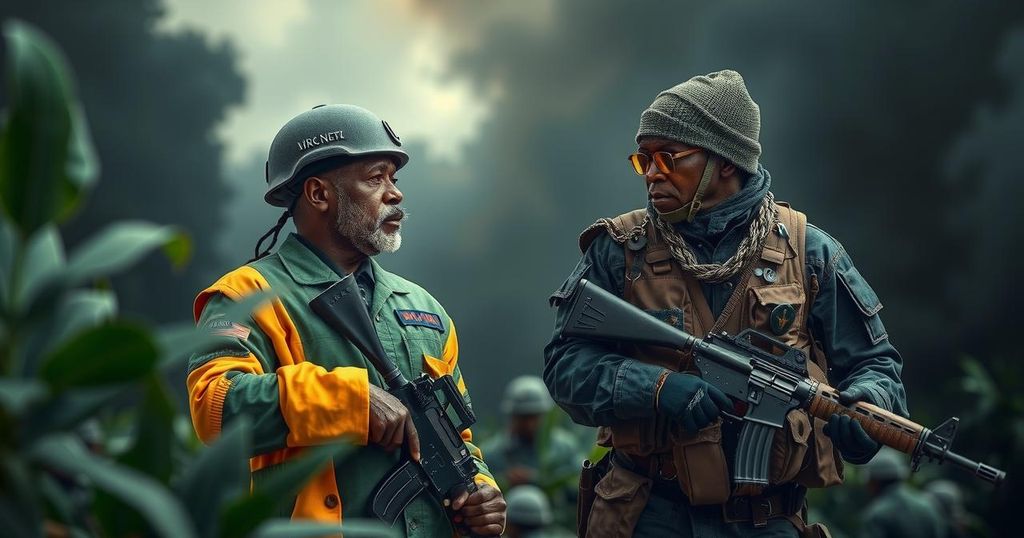Rwanda-backed Rebels Disrupt Ceasefire in Eastern DR Congo
Rwanda-backed M23 rebels are reportedly using a ceasefire to launch offensives and seize territory in eastern DRC, aggravating the humanitarian crisis. The Congolese army insists it is adhering to the truce, while armed groups continue to clash as tensions rise. The situation has drawn criticism from international observers, including Angola and France.
The eastern region of the Democratic Republic of Congo (DRC) is currently witnessing heightened tensions as Rwanda-backed M23 rebels have launched renewed offensives, taking advantage of a ceasefire agreement established in early August. Since their resurgence in late 2021, the M23, which predominantly consists of ethnic Tutsi fighters, has captured significant territories, impacting humanitarian conditions and displacing numerous individuals. Despite the truce facilitated by discussions between Rwanda and the DRC, reports indicate that M23 forces have actively engaged in combat, particularly targeting the strategic town of Pinga, a bastion for the Wazalendo militia and the Congolese army. The Congolese military has publicly asserted its adherence to the ceasefire, accusing Rwandan forces of exploiting the situation to expand their territorial control. There have been multiple clashes reported in recent days, including a notable confrontation on October 23 in which M23 forces captured the contested town of Kalembe after skirmishes with the Wazalendo militia. Military sources confirm ongoing hostilities in the region, although no casualties have been reported as of the latest updates. The situation remains precarious, with ceasefire monitors, including Angola, condemning the M23 for its violations and France expressing concern over the group’s continuing military activities. The DRC’s eastern provinces, rich in natural resources, have struggled with decades of conflict fueled by both internal strife and external influences, highlighting the complex dynamics at play in the region.
The eastern Democratic Republic of Congo has been a hotspot of conflict for over thirty years, exacerbated by the presence of various rebel groups and external actors, notably Rwanda. The M23 rebel militia, formed primarily by ethnic Tutsis, has been involved in multiple offensives against the Congolese government, resulting in significant territorial gains and humanitarian crises. The region is rich in minerals but has been marred by violence, making efforts toward peace and stability extremely challenging. Recent attempts to broker ceasefires have often faltered, as factions continue to vie for control and influence in these resource-rich areas, perpetuating cycles of displacement and insecurity.
In summary, the situation in eastern DRC remains volatile as M23 rebels, allegedly backed by Rwanda, continue to engage in military activities despite a ceasefire agreement. The Congolese army’s claims of compliance stand in contrast to reports of armed confrontations, particularly around key strategic locations. The resurgence of violence not only threatens the ceasefire but also exacerbates the humanitarian crises faced by thousands in the region. International actors have condemned these developments, highlighting the urgent need for sustained diplomatic efforts to achieve lasting peace.
Original Source: www.barrons.com




Post Comment